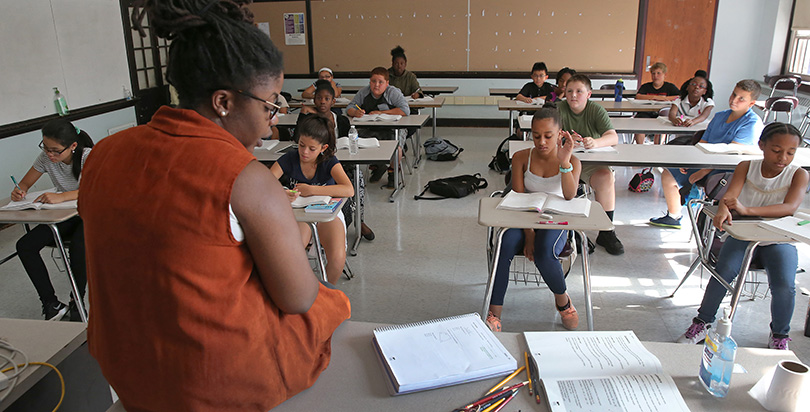Massachusetts Looking to Downplay Kids’ Test Scores as Key Measure in Teacher Evaluations

The proposal, set to go before the state Board of Education later this month, eliminates the “student impact” rating, which was largely determined by state test scores. Instead, the department seeks to fold those results into a new rating that would also include in-person evaluations by supervisors.
“There is wide variation in the success with which individual educators impact student learning,” state education commissioner Mitchell Chester said in a memo to the board. “Because the core work of schools is teaching and learning, I believe that our evaluation framework must reflect both educator practice and student results.”
The current rules, approved in 2011, require districts to give teachers and administrators a “student impact” rating based largely on scores from at least two exams or other measures of student performance. Districts also rate educators on practice, taking into account classroom observations, lesson plans or student work. The ratings are then combined to determine whether an educator is exemplary, proficient, in need of improvement or unsatisfactory.
Most Massachusetts districts started grading teachers under the new evaluation system in 2013 but were slow to design and implement their student impact ratings. By the 2014–15 school year, nearly 10 percent of educators were considered exemplary and 86 percent were deemed proficient, while less than 5 percent were rated unsatisfactory or in need of improvement, according to state data.
Teachers unions and other groups have argued that using test scores in teacher evaluations encourages teaching to the test and that the results do not measure teacher effectiveness.
“We don’t resist corrective action,” Richard Stutman, president of the Boston Teachers Union, told The 74. “We do resist what we would call a phony attempt to grade teachers based on student test scores.”
Glenn Koocher, executive director of the Massachusetts Association of School Committees, said there was also widespread suspicion that incorporating student test scores into educator evaluations would lay the groundwork for the state to start more charter schools — a subject of bitter debate in the last election.
Folding test scores into one rating might make the whole evaluation system an easier political pill to swallow, but some districts will still face tough negotiations with teachers unions over how those assessments are used in job reviews, he added.
“I thought it was a relatively ingenious [move] by the commissioner to allow himself to boast that impact ratings remain while integrating them into the overall evaluation system, where they would be subject to collective bargaining,” Koocher said.
The Massachussettts Association of School Superintendents also opposed the student impact ratings and supports the change.
The Obama administration encouraged states to include student achievement in teacher evaluations through its Race to the Top grant program and through waivers under the No Child Left Behind Act. Massachusetts, for example, won a $250 million grant. The multimillion-dollar incentives worked: The number of states requiring districts to use evidence of student learning in their evaluation systems grew from 15 in 2009 to 40 in 2017, according to a recently released report by the National Council on Teacher Quality.
But under the new Every Student Succeeds Act, the federal government has no say in how states rate teachers and can’t even require states to have evaluation systems at all. One exception is for states using a special pot of money geared toward teacher development, called Title II grants, to revise their evaluation systems, said Elizabeth Ross, the council’s managing director of state policy, who formerly worked for the U.S. Department of Education.
So far, only four states — Alaska, Mississippi, North Carolina and Oklahoma — have reversed course on using student achievement in their evaluation systems, according to the council. “Educators are the single most in-school factor impacting student achievement,” said Ross. “A teacher that contributes to student learning in one year not only has a positive impact in that school year, but throughout that student’s life.”
The National Council on Teacher Quality receives money from the Bill & Melinda Gates Foundation and The Walton Family Foundation, which are also donors to The 74.
Get stories like these delivered straight to your inbox. Sign up for The 74 Newsletter

;)
